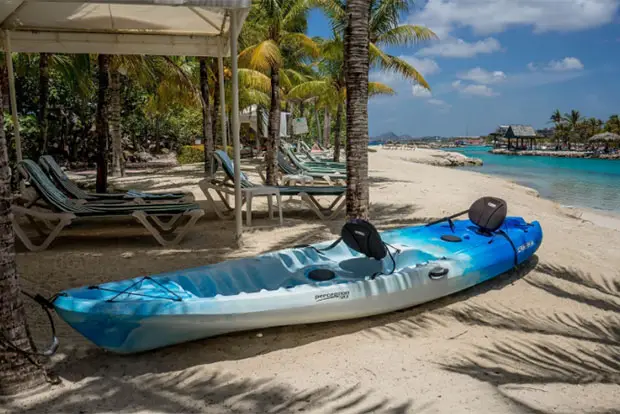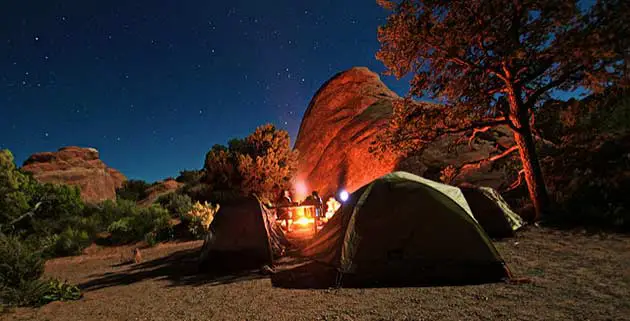Camping For Beginners: How to Choose the Perfect Spot
There are many reasons why tourists go camping; they could be spending quality time with family and friends away from home distractions; seeking silence and solitude for their inner peace, or simply yearning for a solo adventure in the great outdoors.
If you’re a camping novice and still toying with the idea of camping in your head, here’s our advice: go for it! But be prepared. There are a number of factors to keep in mind before you head out on your first camping trip, and one of them is choosing the perfect spot to pitch your tent (check this website for more). In this guide, we’ve gathered some expert tips on how to do just that.
Types of Camping
The simplest definition of camping is “the activity of spending a holiday living in a tent.” But there are different types or categories of camping, besides in a tent. Survivalist camping, caravan camping, a recreational vehicle (RV) or van camping, and even glamping.
The one thing that all of these camping categories have in common is that they all need a place camp. And seeing as nearly all land belongs to someone, either privately or state-owned, there are numerous areas that cater to camping, usually for a fee that varies depending on the facilities that are provided.
Besides basic camping etiquettes, such as consideration for other campers by not playing loud music or littering, there really aren’t any right or wrong ways to camp, but there are right and wrong ways to choose a spot for your tent. Here, then, are some tips on how to do that.
Choose the Perfect Tent

Any of the tips indicated below will be meaningless if you don’t have the right tent (one that will withstand the forces of nature). Camping experts at Gear Signal advise that the perfect tent should meet the camping purpose of the user. For example, family campers should choose a tent that has a porch or two living areas. Solo campers or hikers should choose a tent that is lightweight, both in terms of the material and supporting poles and has a built-in groundsheet. There are a lot more considerations, of course, but then the aforementioned experts will guide you on this decision.
Factor in the Weather
The first tip is to consider is the weather; you want to avoid camping during windy or rainy seasons or when there are hurricane or cyclone warnings for a particular area as these conditions will definitely put a damper on your first-timer camping experience. Then consider the typographical terrain; avoid choosing a low spot where it may become chillier at night or where water may collect during a downpour. Then, if it’s windy, select a spot on the leeward side of large boulders, hedges or tree trunks to offer some protection.
Ground Surface

Needless to say, you need to choose a flat and level ground surface to avoid having to sleep at an uncomfortable angle. Look for any flat surface that is covered in grass or sand, and clear the spot of rocks, pebbles, twigs, or any protruding objects.
Location Tips
Besides a flat surface, choosing a perfect spot to place your tent should be planned with as much consideration for other hikers or campers as possible. You also need to make sure you’re close to water and firewood but keep in mind not to camp near stagnant pools because they’re breeding ground for insects. Then, make sure you’re not on, or anywhere near animal trails and ant hills; they will totally ruin your experience. In terms of firewood, it’s worth doing some prior research on the tree species to be found in your planned camping location. Some trees, like the Sumac in North America and Tamboti in southern Africa, are known as toxic burning wood. Inhaling smoke from the burning wood can cause severe stomach upsets.
Surrounding Area
Before pitching your tent, consider what’s above you for your own protection. Don’t place your tent beneath rotting or ant-infested tree branches as they might fall on you and your tent. Some trees are known to drop twigs, branches, and pinecones unexpectedly, so make sure you know which tree is healthy enough and which isn’t. Steer clear of rockslide areas and avalanche paths as well; it’s always wise to be careful and protect yourself from the unpredictability of nature.
Summer Shade and Winter Sun
If you’re camping in summer, be sure that your perfect spot has shade, at least for part of the day. Pitch your tent where you can get some shade from the midday heat. Study where the sun rises and sets and arrange your tent accordingly to avoid excessive heat.
Likewise, if you’re camping in winter, make sure that you get all the sunshine you can get to warm yourself and your tent. You also need to place your tent on snow or bare ground that is void of all growing plants.
Privacy

If you’re camping at an established camping site, then consider your privacy as well. Make sure your spot is away from noisy campers, even though meeting new campers is always a plus, a little privacy will allow you to enjoy the peace and quiet that wilderness areas offer. Consider booking in advance to find the perfect spot.
Check Regulations
Wherever you decide to camp, be sure to check the regulations pertaining to that area to avoid park rangers, or private landowners asking you to change your camping site. All national parks and forests have different restrictions and permits, so be prepared.
Final Tips
Most important of all, you need to keep your area clean at all times for a variety of reasons. The first is to avoid damaging the ecosystem. Secondly, you don’t want to attract wildlife to your area. Thirdly, this is your first camping experience, so it needs to be perfect and messy is certainly not perfect. And finally, be sure that you have all the right camping gear to enhance your experience.
Camping is an enjoyable experience for many tourists. As a beginner, you might think that it’s a challenging activity to do, but when you thoroughly prepare for it, tent camping will provide you with an adventure of a lifetime. Plan your trip well, choose your perfect camping spot well by using the above tips, and pack the right gear. And remember; to enjoy travel experiences, you have to respect others and the environment.





